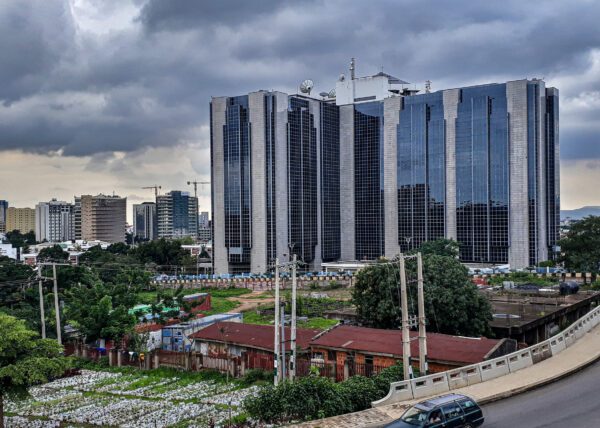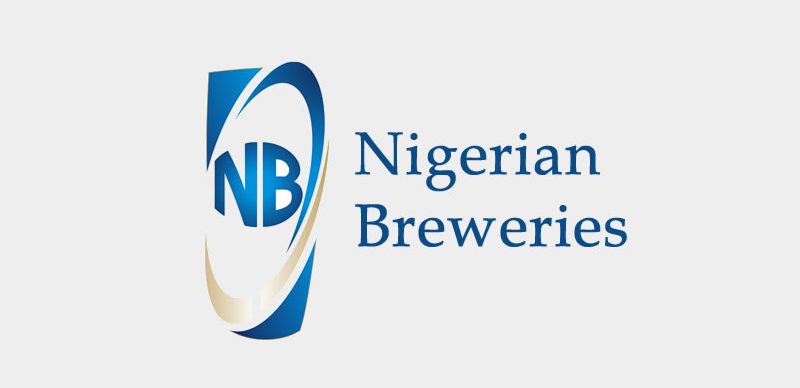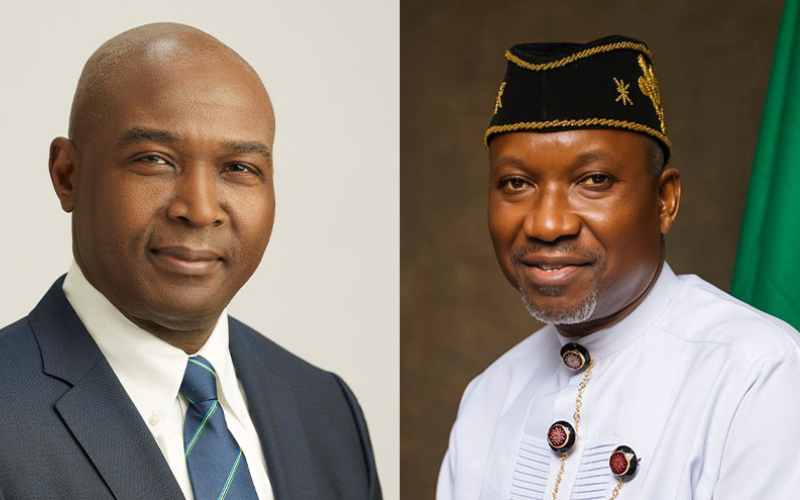In this conversation, Co-founders, STEM Africa Fest, Jadesola Adedeji and Titi Adewusi, highlight the STEM Africa Fest’s journey from its early beginnings to its growing continental footprint, its impact to date and the broader mission of building a sustainable ecosystem that complements formal education and fosters year-round engagement. Emma Okonji presents the excerpts:
STEM Africa Fest has grown into a continental platform for Science, Technology, Engineering, Arts and Mathematics (STEAM) learning since its launch in 2021. Can you take us back to the very beginning—what gap did you see in Africa’s education landscape that inspired the creation of this festival?
From the very beginning, what drove us was the recognition of a critical gap in Africa’s education landscape. While children were going to school, many were not being exposed to the kind of practical, hands-on learning that sparks curiosity, creativity, and problem-solving. We saw how heavily the system leaned on rote memorisation, and how little room there was for exploration, innovation, or for children to imagine themselves as scientists, engineers, artists, or inventors.
We wanted to change that. The idea behind STEM Africa Fest was to create a platform that demystifies science and technology, makes it fun, and shows children that they can apply what they are learning to real-world challenges in their communities. In 2021, we started in Lagos with a small but powerful vision—to let children touch, build, experiment, and collaborate. The response was overwhelming, not just from the learners, but from parents and educators who saw the excitement and potential in this approach. That was when we knew we had tapped into something bigger than a one-off event. What started as a simple idea quickly became a space where students, parents, and teachers could all re-imagine what learning could look like. And from that moment, the festival began to grow beyond anything we had initially imagined.
Building on that, what was the founding mission of STEM Africa Fest, and how has it evolved as the initiative has expanded across countries?
Our founding mission was simple yet ambitious: to spark a love for STEAM in young children aged 7 to 16 through experiential, hands-on learning that goes beyond textbooks. We wanted to create a space where children could explore, question, and build, a space where they could see themselves as future engineers, scientists, and innovators. As we have expanded across African countries, our mission has deepened. We are not just exposing children to STEAM concepts; we’re actively contributing to the realisation of our vision: an Africa where ideas evolve into transformative community solutions, where inventions address longstanding challenges, and where creativity pioneers’ new frontiers in technology and art. Each country we enter brings unique challenges and opportunities, strengthening our resolve to make STEAM education accessible and relevant across diverse African contexts.
When you look back at the first edition in Lagos and compare it to the 2025 edition, what defining moments stand out in this journey?
When we look back at the first edition in Lagos in 2021, the defining moment was simply proving the concept—that children, parents, and educators were eager for a space where learning went beyond textbooks into hands-on exploration. The energy in the room showed us that there was a real appetite for STEAM learning delivered in a fresh and practical way. Comparing that to the 2025 edition, the growth is undeniable. This year’s festival brought together over 3,000 participants under the theme ‘AI for Good,’ and the defining moment was seeing children not just engage with activities but begin applying what they’ve learned to solve real-world problems. That evolution—from sparking curiosity in 2021 to showcasing creativity, innovation, and problem-solving in 2025—captures how far the festival, and the children themselves, have come.
Partnerships have been central to your growth. Can you speak about the role of collaboration with schools, governments, and corporate sponsors in sustaining and scaling the festival?
Partnerships have been absolutely central to the growth and sustainability of STEM Africa Fest. From the very beginning, we knew this couldn’t be a solo effort. Collaboration with schools and educators has ensured that the festival complements classroom learning, while engagement with governments has helped us align with national education priorities. Corporate sponsors such as IHS, First Bank, and Argentil have also played a crucial role—providing resources, expertise, and platforms that make it possible to reach more children each year. What these collaborations demonstrate is that when different stakeholders come together around a shared vision, we can create learning experiences that are not only impactful in the short term but also scalable and sustainable across the continent.
The development of human capital is critical for driving innovation, economic growth, and Africa’s global competitiveness. How does STEM Africa Fest contribute to this agenda, particularly in cultivating STEM talent for the economy?
You’re right—Africa’s competitiveness in the global economy will depend on how well we nurture and deploy our human capital. STEM Africa Fest contributes to this agenda by giving children early exposure to practical, problem-solving skills that are directly relevant to the future of work. Beyond sparking interest in science and technology, the festival cultivates critical thinking, creativity, collaboration, and resilience—skills that employers consistently identify as essential in today’s economy. By creating a platform where thousands of learners, teachers, and parents can experience STEAM in action, we’re helping to build a pipeline of talent that is not only ready for careers in STEM fields but also capable of driving innovation across sectors. In that sense, STEM Africa Fest is more than an event—it’s part of a long-term strategy to strengthen Africa’s human capital base for sustainable growth.
In less than five years, STEM Africa Fest has reached over 20,000 children, parents, and educators. What does this number mean to you and how do you measure impact in real terms?
Those 20,000 represent creativity activated, potential unlocked, and futures transformed. As someone who transitioned from a decade-long career with one of the Big Four consulting firms to education innovation, I understand that real impact isn’t measured in attendance numbers. It is measured in the ability to unlock the creativity, critical thinking skills of future innovators. For us, the impact is the seed planted in 20,000 future problem solvers and innovators in Africa.
We measure impact through the stories that emerge: the child who gained the confidence to start a coding club at school after attending our festival, the girl child who can sees for the first time a future in a career field, the educator who realises STEM education is not optional and starts STEM clubs. We track how many children continue engaging with STEAM subjects after our festival, and most importantly, how many see themselves as future innovators rather than passive consumers of technology.
Access and equity are critical issues in African education. How is STEM Africa Fest ensuring inclusivity, particularly for children from underserved backgrounds?
Inclusivity is fundamental to everything we do. Through my experience co-founding 9ijakids, I learned that high-quality educational content must be accessible and affordable to truly make a difference. At STEM Africa Fest, we partner with NGO, corporate organisations, public schools, low cost school to ensure children from diverse socioeconomic backgrounds can participate.
We also focus on geographic inclusivity—expanding beyond major cities to reach children in places like Ilorin, where we recently engaged over 500 students and educators. We provide materials, resources, and experiences that children can take home, ensuring the learning continues beyond the festival day. Our goal is that a child’s postal code or family’s economic status never determines their access to world-class STEAM education.
You recently conducted the July 2025 edition of STEM Africa Fest in Lagos under the theme ‘AI for Good,’ where children engaged hands-on with AI, robotics, and coding. How do you ensure these activities help children actually understand and apply the technology in ways that matter to them?
The ‘AI for Good’ theme was intentionally designed to connect advanced technology with real-world African challenges. We don’t just teach children how AI works; we show them how it can solve problems they see in their daily lives; from healthcare delivery in remote areas to agricultural optimization to educational access. Our approach is deeply practical. Children don’t just learn coding, robotics, AI, and design thinking, etc – they acquire practical skills they can use to address their community needs. By connecting technology to purpose, we ensure children see themselves not as passive users but as active creators who can use these tools to improve their world. This contextual learning makes technology meaningful and memorable.
Beyond exposure to robotics, AI, and coding, what philosophy or mindset do you hope children walk away with after experiencing the festival?
We want them to see that learning is not limited to textbooks, that they can ask questions, experiment, and even fail as part of discovery. Our philosophy is that STEAM is not just about technical knowledge, but about cultivating curiosity, creativity, problem solving and confidence—the belief that they can solve problems in their communities and contribute meaningfully to the world.
Looking ahead, what is your long-term vision for STEM Africa Fest—how do you see the festival evolving to reach more children, expand its programmes year-round, and strengthen partnerships that build future-ready skills?
Looking ahead, we see STEM Africa Fest growing into much more than an annual gathering. Our vision is to create a sustained platform—one that reaches more children across the continent, supports teachers through training, and offers year-round programmes that make STEAM part of everyday learning.
Partnerships will remain central to this journey. By working closely with schools, governments, and corporates, we can scale in a way that’s both impactful and sustainable. Ultimately, the goal is to prepare Africa’s young people with the creativity, skills, and confidence they need to compete and lead in a rapidly changing world.






